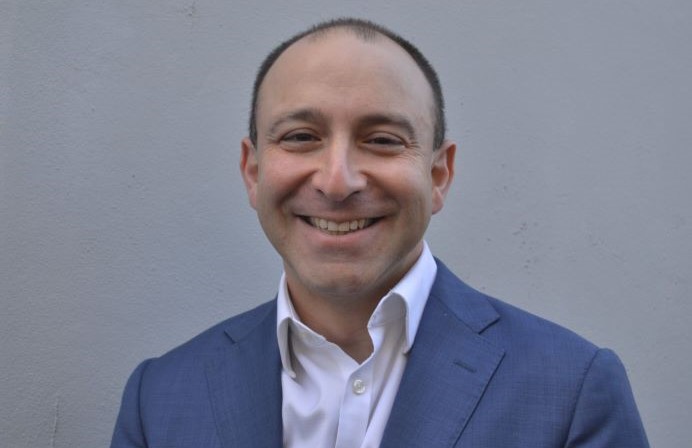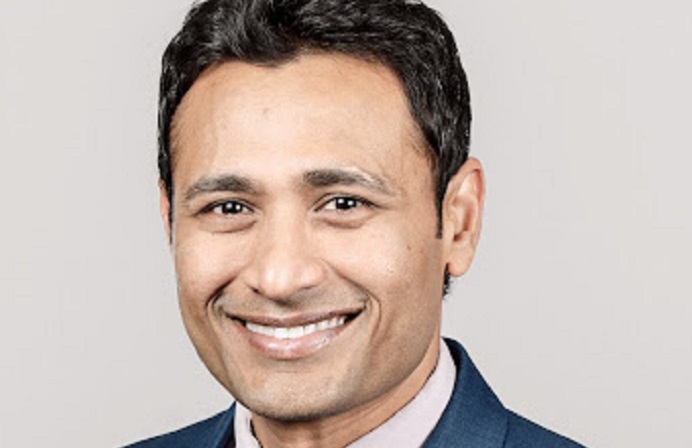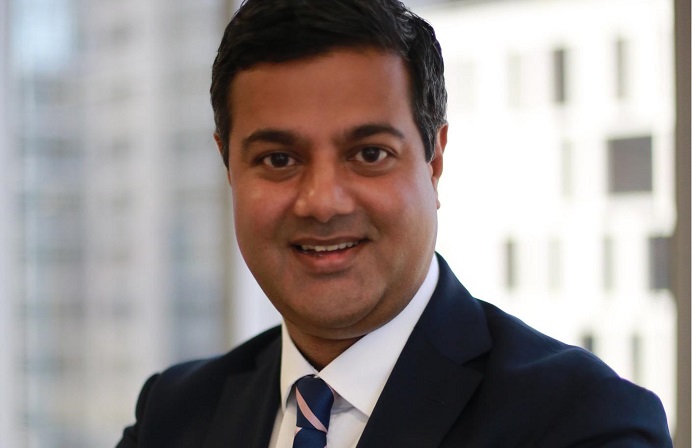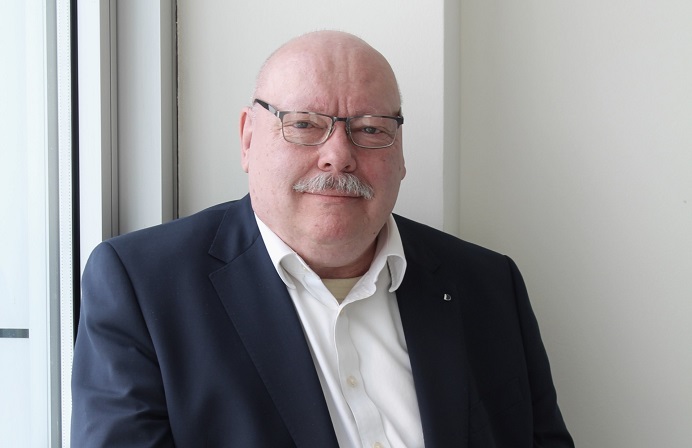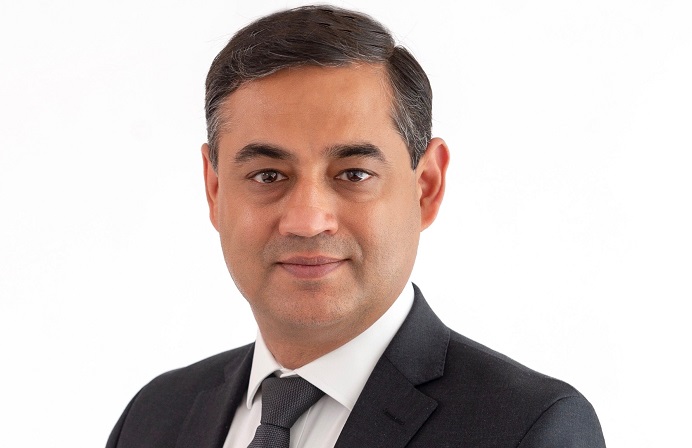
In an industry hardly known for bleeding-edge innovation or digital-first design, Integrity Life is a welcome anomaly for the tech-forward.
Proudly pitching itself as the industry’s foremost disruptor, Integrity Life, founded in 2012, is among Australia’s first cloud-native, legacy-free life insurers. And Ashish Khurana, Integrity’s recently appointed Chief Information Officer and Chief Technology Officer, is powering its charge to become a dominant force in Australia’s incumbent-entrenched life space.
We sat down with Khurana, a veteran technologist and transformation leader in financial services and technology industries, to explore how his journey from young prodigy programmer to the critical ranks of the C-suite has shaped his thinking as a tech and transformation leader, the enabling technologies empowering Integrity’s breakthrough forays in digital, and why he believes a successful disruption agenda has more to learn from the tortoise than the hare.
FST Media: Taking a retrospective on your two-decade career in the fin services and tech sectors, spanning not just Australia but also APAC and Europe, what have been some of your career highlights to date?
Khurana: I’ve been privileged in my career that I’ve been given the opportunity to travel and work across the globe with some amazing people and organisations. My origins are in India, and I began my career there as an entrepreneur. During my graduate degree, I established a small software development business building accounting software – this, in fact, ended up paying for my education. This experience was a fantastic grounding for getting into business and, at the same time, learning about technology and building a concrete product from the ground up.
Following a stint in APAC with tech firms such as NIIT and Singtel, I ended up moving to Australia, working with CSC and then with BMC Software in architecture roles before taking the plunge into the financial services industry, beginning with Westpac, right around the time it acquired St. George Bank.
FST Media: Certainly was an exciting time at Westpac!
Khurana: Absolutely. It was just as the global financial crisis was hitting. At the time, Westpac was undertaking a massive transformation program under Bob McKinnon’s leadership, which beyond integrating the St. George business, also set out to remediate our core business capabilities, like building a new online banking platform – starting from infrastructure all the way to the business applications.
I joined Westpac to lead their service management strategy and engineering function. We were working with multiple vendors at that time, including IBM, and in-sourcing some of the capabilities back into the bank, especially service management.
Leading this team, I built a lot of new capabilities: a new network operation centre and new service desk capabilities, as well as streamlining our tech operations across the bank.
I then got an opportunity to work for Macquarie Bank as Division Director overseeing their production management and some infrastructure services like compute, storage, databases, and data centres. That was my first experience in the investment banking side of things.
FST Media: You then leveraged this experience for your next role in Europe?
Khurana: Joining Saxo Bank – whose platform enables trading of basically any kind of financial product, from equities and ETFs to derivative products such as CFDs and options – in Denmark back in 2018 was a hugely rewarding experience.
When I joined as Chief Architect, the bank was going through a massive scale-up exercise and my remit was to help them transform the platform to be cloud-native in order to enable that scale. At Saxo, I first built the Cloud Centre of Excellence and subsequently became the CTO with responsibility for the delivery of all shared capabilities for the bank including Enterprise Architecture and Enterprise Platforms such as Cloud, Data Platforms, Infrastructure Services and DevOps tools.
FST Media: So what, then, lured you back to Australia and specifically to Integrity Life?
Khurana: Early last year, my family and I decided, for personal reasons, to come back to Australia. A CIO/CTO role then came up with Integrity Life, and I decided to jump on it.
I’d never really worked for a life insurance company before. Speaking at the time to Integrity’s Managing Director and CEO Sean [McCormack], who arrived at the company in March 2021, he made a very compelling business argument:
[If] you look at the life insurance industry, the top five insurers in the country today hold about 84 per cent of in-force premiums. And if you look at new business and new premiums that are being written across the country, about 69 per cent of them go to the top five.
This shows there’s a real concentration of products and services in the industry. It is such an important product and service for customers; we’re there to provide financial security and reduce stress when the worst of things happen to you – our customers.
I looked at market statistics and our ability to make a real difference in real customers’ lives, having a better product and great service capability that fundamentally supports our customers’ lifestyle or getting used to their new norm in those cases when the worst in life hits you. This, for me, was a compelling business case and a cause I could rally behind.
And, of course, having kicked off just four years ago, Integrity is in scale-up mode. There was a need for that next level of maturity, bringing some of those enterprise-level capabilities. Also, we’re a heavily regulated industry; as we scale up, there’s a need for us to be even more stringent about our regulatory needs and compliance. Looking at our architecture and our whole technology platform to see how we build the required business functionality quickly in a sustainable way.
FST Media: What kind of tech innovation opportunities have you realised since you joined Integrity mid-last year?
Khurana: From the tech side of things, it’s provided both a challenge and a great opportunity. The business has been through a scale-up since March 2021.
If you look at just before Sean [McCormack] started, we had around $20-25 million in in-force premiums. Today, we’re close to $130 million. This growth shows that what we’re doing is working, and having that growth requires us to have a platform that can scale and help us become more efficient.
Life insurance products are complex; you’re essentially insuring the most complex thing on Earth – human life. The longevity of the product is long; it could be there with you for more than 30 years. Of course, there’s a lot of complexity when it comes to how we manage risk when underwriting policy to how claims are managed effectively and how fraud is reduced. There’s a lot of opportunity to innovate in this industry – and that’s what we’re trying to do – and in that process, make the business efficient for us to compete against larger incumbent life insurers.
It’s vitally important for us to have an efficient business. That efficiency comes from business process automation and ensuring that we’re able to provide STP [straight through processing] capabilities wherever possible throughout the value chain. There’s been a great opportunity for us to do that, which is something that really attracted me to Integrity Life. I’ve now been with Integrity for about twelve months. There’s a lot of opportunity out there for us to continue to evolve and take the business to the next level of maturity and growth.
FST Media: I imagine that rapid push to scale also taps into a bit of your entrepreneurial spirit and provides a real opportunity to stamp your mark.
Khurana: Exactly. And, in fact, while I’ve done a lot of work around transforming technology capabilities for various organisations, it’s never just about transforming the technology stack.
As [Melvin E.] Conway’s law states, “Any organisation that designs a system will produce a design whose structure is a copy of the organisation’s communication structure”. Hence, it’s equally important for us to build a business operating model that evolves as the businesses grow to enable that scale and agility.
I’ve been heavily involved throughout my career in fundamentally re-architecting operating models and in adopting new ways of working.
For instance, how do we ensure that operating models, such as DevOps, value chains and agile implementations are embedded into the business and change the way the product and the tech teams are working together in alignment with the business and technology teams?
That’s been a key part of my career with nearly every organisation I’ve worked with: it’s never just about tech for tech’s sake. We are constantly looking at customer needs and customer focus, and the whole value chain of the business, always asking, ‘How can we quickly add value to that position?’
FST Media: Furthering on this, could you give us a little taste of Integrity’s tech transformation roadmap over the next 18 months?
Khurana: As I mentioned briefly, our focus is on digitising the entire value chain of life insurance, from creating a quote all the way to making a claim. There are so many steps involved in that, from quotes to applications to the underwriting experience, ongoing payments management, defaults, and lapses, to policy administration and then, ultimately, to the claims process.
As we look at this whole business value chain, we’re looking at each of those processes and at how we become digital and reduce the need for as much manual work as possible – for both the insurer and the financial adviser. In that sense, it’s not just about becoming efficient as a business, but being able to provide more timely and value-added services to our customers.
At the end of the day, this impacts the experience of our B2B partners: ‘How long does it take for me to make a change to my policy? How long does the underwriting process take? How long does it take for me to put a policy in force? How long does it take for me to even change my policy structures, from super to personal and so on?
For us, it’s about making all those processes digital and automated as much as possible – that’s our focus right now.
Over the next two years, we’ll be spending our time and energy on digitising the key aspects of the advice value chain and making business processes as efficient as possible.
FST Media: And not necessarily having so much of a legacy burden must be a significant advantage for Integrity to innovate on.
Khurana: Absolutely. Our system is legacy-free. We have one PAS, one CRM, one Portal etc. We are cloud-native and mostly use SaaS and PaaS services to run our business.
FST Media: That’s certainly something unique in the life insurance space.
Khurana: It’s unheard of! And it’s not just the cloud. Not having a legacy of multiple PAS [policy administration and servicing] platforms, multiple underwriting systems or multiple portals is a huge benefit for us.
Being a small, emerging business, obviously we need to consider the other side. We don’t have the capital of larger businesses, so we really need to be innovative and smart in the way we manage and deploy our technology capability, and in using technology to enable our business.
FST Media: Of course, while we focus a lot on the benefits of a digital-heavy ecosystem, there are still limits to a digital-only experience for life insurance, particularly in what is often a highly emotive claims experience.
Khurana: At the end of the day, we’re people working with people. We can never be a robo-banking or robo-advisory business – we’re in the life insurance business. It’s a very personal, very human touch-sensitive business.
FST Media: As you mentioned, Integrity was born in the cloud – quite a unique circumstance in the life sector. Could you take us through a bit of your cloud journey to date and some key enterprise wins you’ve realised through cloud?
Khurana: I can’t imagine starting a small business or a start-up without fully utilising cloud. The CapEx and the upfront investment required to start up a business can be hugely minimised by utilising this end service.
It’s like not having to build a power plant to draw power; I just use the power from the grid as I need it.
Cloud has significantly reduced our CapEx requirements, and we can scale up and down as needed. Being a scale-up business, we are very sensitive to the market conditions and how the business is growing. Cloud capabilities are not just there to help scale up, they’re equally there to help scale down when you need to make those tough decisions.
Another factor is the unique nature of the architecture we use to build our tech stack. All our capabilities are built in microservices architecture, for instance, and it’s all API-driven, and all based around an event hub and event services architecture.
Utilising modern architectural patterns has enabled us to scale up on demand, automatically.
We’ve been very conscious about what architectural patterns and practices we deploy on a day-to-day basis to ensure that we’re continuously able to scale up using cloud.
The third benefit we’ve seen is our ability to utilise new services and new capabilities that rapidly come around in cloud, all without having to build massively expensive database platforms or the AI capability ourselves. That’s just not possible! After all, we’re not in the business of running databases and platforms – we’re in the life insurance business. I need to be able to use the latest tech and capabilities that cloud brings to us, especially in the areas of AI or machine learning.
Also, for simple things, we use a lot of SaaS products, from CRM to underwriting products to claims capability out there in the market. We want to utilise as many of those SaaS capabilities out there, and I can do that rapidly if I’m able to consume cloud in the right way.
Another example of this is in automation – referring specifically to tech automation rather than business process automation – that cloud has enabled for us. We do weekly releases, multiple times per week. Our deployments are completely automated and follow green-blue deployment models. That’s given us the agility to move fast and respond to business needs quickly.
We’ve also been able to exploit the security best practices and insights that cloud platforms provide to manage our environments. These are all available for me to consume as bite-sized pieces without having to invest a single penny of CapEx to build them. That’s a huge benefit for a business like ours.
FST Media: So, you’re confident in the uptime of cloud for Integrity?
Khurana: For us, it’s absolutely been a non-issue. We’ve ensured that we’ve designed our applications to be highly available and our architecture to be scalable. And you can’t just rely on building an application which runs on a single server and hope that it’s always going to be relevant.
With regards to cloud partners, we’ve so far been very happy with our cloud partners in providing a level of service and availability for us to maintain a sustainable business.
FST Media: You mentioned through adoption of cloud your increased ability to tap AI capabilities. Looking particularly at the claims space, how are you leveraging AI and automation tech to expedite this process – a complex proposition in the life space?
Khurana: We’re working currently to enhance a claims propositions strategy, looking at various options in the market, both in terms of software and service capabilities. Admittedly, we haven’t yet spent a significant amount of time exploring AI and automation technologies in this space. But it is a maturing domain. There are new capabilities entering the market and we’re at the very early stages of analysing where we can apply some of these capabilities, both in terms of the services that are available in market as well as the products available for us to streamline this process.
There are many opportunities out there for AI use cases in general. For example, at my previous organisation we used Azure Cognitive Services extensively to improve the customer onboarding journey by auto-translation and document analysis.
There are many areas where we can deploy AI and machine learning capabilities. We’re at the very early stages of that at Integrity, but it’s an area we’re actively working on analysing with many vendors.
FST: The move to personalisation and customisation of policies has been a major play within the wider insurance industry over the last few years. How does personalisation rank within Integrity’s technology priorities?
Khurana: It’s hugely important. If you look at our value proposition, we believe providing a personalised experience for our advisers and partners is vital. We’re a B2B business: we don’t sell directly to the public; we sell insurance through our partners – financial advisers.
For us, it is extremely important to sell personalised services to our partners, because every capability that we’ve built for them and self-service capabilities around the policy lifecycles of their clients, knowing it reduces the cost of operating their own businesses.
If you look at the life insurance industry or even the insurance industry in general in Australia since the Royal Commission, it’s become quite difficult for Australians to get advice; the cost of advice has gone up significantly and the number of advisers in the industry is reducing day by day. Our job as product providers is to make it easy for our advisers to do their business, because the easier it is for them to do business with us, the easier it is to provide advice services to their clients.
Personalisation is a core pillar of our strategy and something we see as vitally important for our advisers and partners. We enable that through our life platform, our adviser portal, where we try to give as many detailed insights about their business and their client base with us – whether it’s around which client policies are coming up for renewal, which policies are delayed in payments or about to risk lapsing, how many applications are in the pipeline, or in which process are they at from an underwriting point of view.
FST: A question I often pose to interviewees is on emerging trends in their specific domain. What tech innovation do you feel will fundamentally transform the life sector over the next five years?
Khurana: AI and ML are the talks of the town right now. And everyone’s looking at opportunities out there, whether it’s ChatGPT or improving CX through customer service channels.
Expanding beyond this, technologies like blockchain will become critical for us as the industry evolves. Everyone’s still touching water and finding ways to fully utilise distributed ledger capability and use cases around it. If you look at life insurance policies, it’s really a contract. If you can convert those policies to smart contracts, which are controlled by the personal life insurer and are able to utilise an industry blockchain – allowing us to collaborate across different service providers and insurance policy providers, where policies can be transferred easily – it can make the whole ecosystem work smoothly and make the life of the consumer that much simpler.
Nevertheless, blockchain is not, currently, a central focus for Integrity. Our eyes are really on streamlining business operations.
FST Media: One of the guiding principles of Integrity is to fundamentally disrupt the life sector. What, ultimately, does disruption mean to you in 2023, especially for a fast-maturing insurer like Integrity?
Khurana: Disruption doesn’t come in some magical way. We’re in a heavily regulated industry; we don’t expect to bring a disruptive product to the market that doesn’t comply with regulatory requirements!
Disruption is also a bit of an abused term. It gives the impression that suddenly, overnight, we’re going to become a different company.
Disruption for me is continuously utilising technology on a day-to-day basis and making things better for our customers, little by little, every day. At Integrity, it is about continuously reducing the costs of doing business for our advisers, to make us the most efficient life insurer in the industry. This will also get us a greater share of business from our advisers, not only through increased efficiency, but also because we’re lowering the cost of business for them. Through that process, we’ll also provide a customised and personalised experience, and provide products in the market that are competitive and able to meet customer needs, all the while sticking to the regulatory guidelines set by regulators. That’s what disruption, for us, looks like.
There’s no magic bullet to be implemented in 2023. It’ll be many small things – for instance, a new claims proposition, continuous automation of business processes, ongoing investment in our digital channels, and a personalised portal as well as greater insights for our advisers, utilising data patterns to understand and operate our business better. Combined, we hope to create a disruptive force in the market and give customers a bit of purple amongst the sea of beige. ◼
Ashish Khurana was a featured keynote presenter at FST Media’s Insurance Summit 2022.

